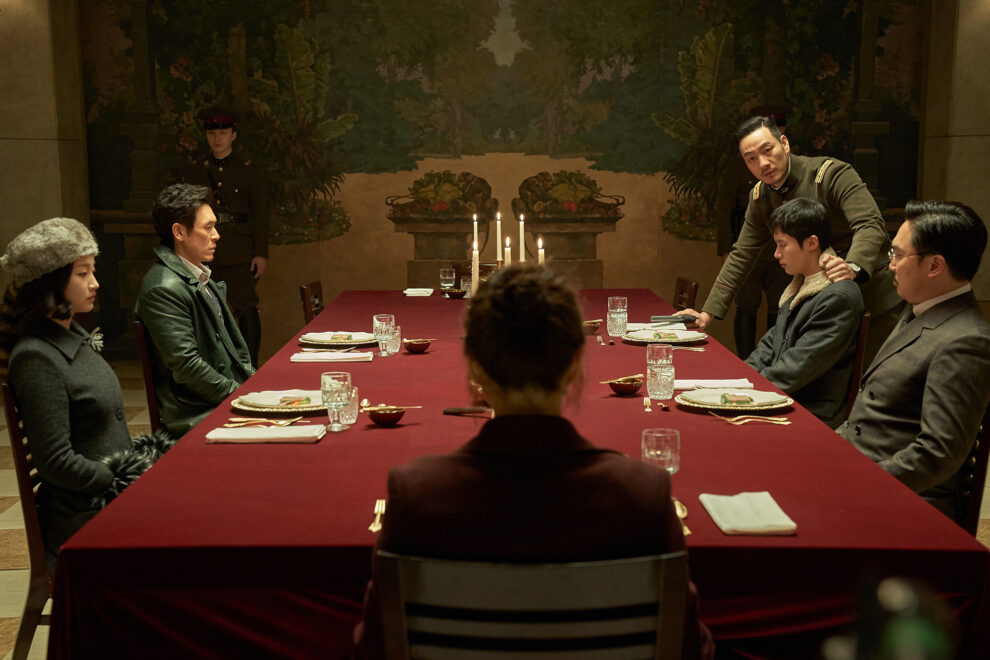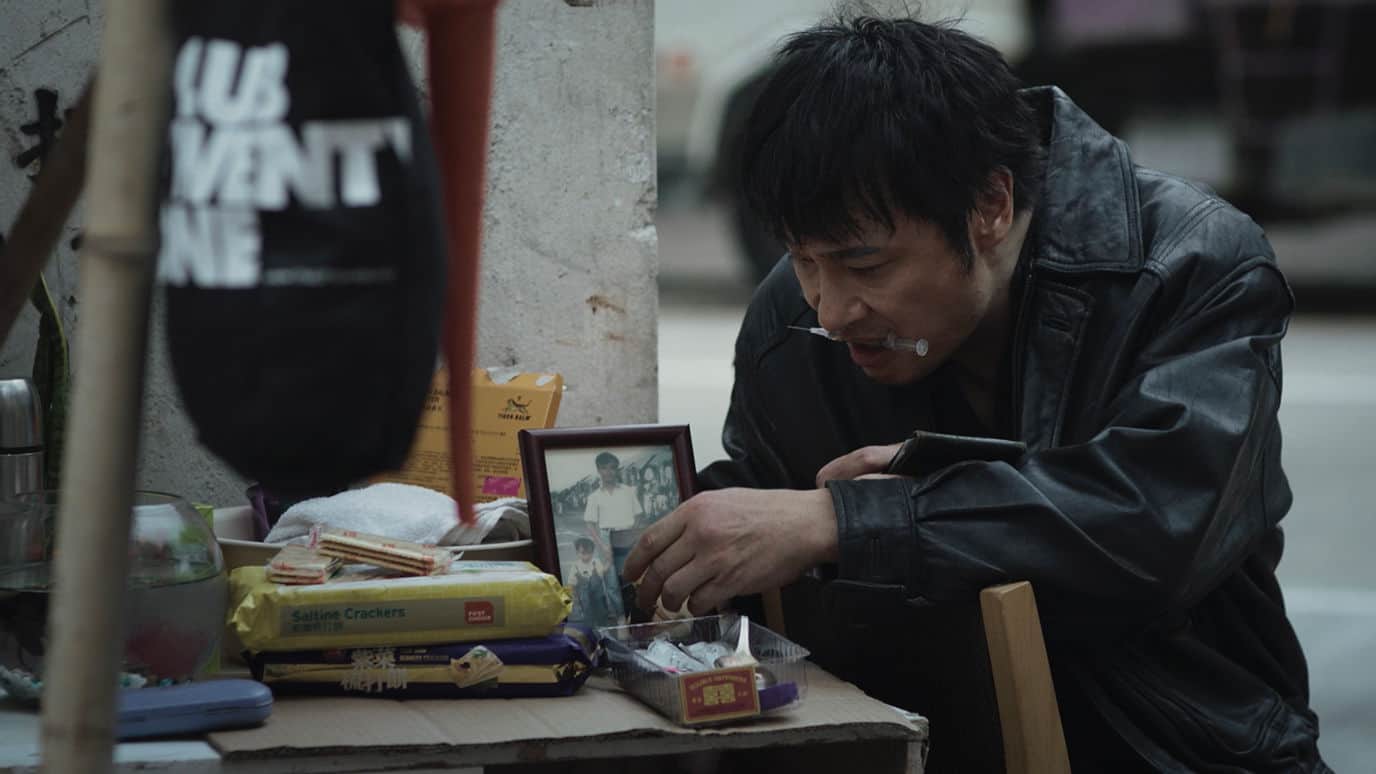by Eleo Billet
After “Believer,” Lee Hae-young returns with a patriotic historical film about Korea's liberation movement in the 1930s. A spin-off of some sort to “The Age of Shadows”, the director mixes his inspirations between film noir, action flick, and “The Handmaiden” through its combative lesbian heroines.
Korea, 1933. The country has been under Japanese rule for more than twenty years. However, organized groups of Koreans are resisting colonization and risking their lives for the independence of their homeland. Park Cha-kyung, an employee in the communication department, is one of their members. She is a Phantom. The spy, with her unit, prepare the assassination of the new Japanese resident-general on his arrival in Seoul for his taking office. Unfortunately, the activist Yoon Nan-young, in charge of assassinating the high-ranking official, misses her target and is hunted down. She dies of several bullets, in the arms of Cha-kyung. Covered in blood, the spy is almost unmasked, and the mission is compromised.
When the resister tries to flee, she gets arrested at her home by Kaito, the captain of the Japanese security forces. The latter takes her and four other suspects to a remote hotel to find out which one is the Phantom through torture. Among the suspects are Baek-ho, a young man who works with Cha-kyung, Chief Cheon, a shy code breaker, Yuriko, the secretary of a powerful man in the Japanese government and Junji Muramaya, a Japanese policeman suspected because his mother is Korean. In the face of Kaito's threats, Cha-Kyung has only three options: to reveal herself and preserve the innocents, to remain silent to save her own life, or to collaborate with the other suspects to overthrow the Japanese soldiers.
A throwback to American film noir from the last century, Lee Hae-young's new project takes us into an almost bicolor universe. Women in raincoats smoke in slow motion under the rain, exchanged coded messages pass from hand to hand in an old illegal cinema, and a scheme is brewing as the sumptuous film “Shanghai Express” plays in the background.
Nevertheless, this only applies to the first part of “Phantom”, which is very well constructed and engaging. But after Cha-kyung's arrest, the tension collapses on its own. The middle of the film makes it particularly confusing for the audience. On the one hand, we lose sight of the heroine's purpose amid these annoying, two-dimensional characters (the insecure cat-loving man, the smug secretary who constantly yells, and the Big Bad). On the other hand, the huis clos part lingers and graces us with a whodunit way too late to justify the anticipation.
But once all the elements are in place and the people's names are finally known, the action starts again to our greatest pleasure. The cliffside hotel then becomes the scene of an impressive battle. The figures reveal their true nature, the tempo is frantic, and the confrontations between Koreans, Japanese, allies, and enemies are never-ending. At last, Cha-kyung's path is palpable, and we become genuinely attached to her and her principles. As for Yuriko, she deploys herself with strength and turns into the best character.
With its large and luxurious rooms of the cliff-top hotel, the old cinema that lights up the night, and the tunnels where the spies flee, “Phantom” offers magnificent spaces that strike the retina. Kim Bo-mook, combined with Ju Sung-lim's polished photography with green highlights, gives the settings an aura of darkness and creates powerful tension through production design.
“Phantom” is part of the wave of new Korean cinema, with movies such as “Special Delivery” and “Kill Boksoon”, that focuses on powerful women. In this action-packed production, the female activists are courageous, supporting each other far from the clichéd female rivalries. Besides, the shots of two women with a machine gun are extremely enjoyable. Also, there is much room for the question of patriotism, the love of one's nation, and the sacrifices made for it. The extensive, in-depth dialogues offer a welcome alternative to past productions that are more nationalistic than historically relevant. The Japanese, played in particular by the excellent Park Hae-soo and Sol Kyung-gu, have their feelings and morals explored and are not merely cold villains.
Check the review of “Kill Boksoon”
Although not the protagonist, Park So-dam is the actress who stands out the most and she often steals the spotlight. She seems to enjoy herself playing a bossy brat who conceals a more militant and emotional background. The actress handles humor and vulgarity to perfection, especially in the scene where she learns of her dismissal or when she finally arms herself. Just as she is about to become annoying, she deploys the strength of her acting and alters our perspective. It was already visible in Lee Hae-yeong's previous film, “The Silenced”, thanks to which Park so-dam became a rising star.
Lee Ha-nee is not left out. After recently appearing in popular dramas, she returns to the cinema in a leading role. The troubled and tormented character of Cha-kyung, which she interprets with precision, is very relatable. Moreover, she impresses in the fight sequences and brings to her character a welcome fragility.
And how to forget Esom, who plays Cha-kyung's lover, Yoon Nan-young? If she appears in only a few key scenes, her aura is so mysterious and sensual, a la Marlene Dietrich, that she marks the heroine and the audience in an indelible way.
Despite the weaknesses of its midpoint, “Phantom” takes the time to build up its tension-filled environment before blowing everything up. The conclusion is much more emancipating than a historical film would suggest and calls for resistance.
















